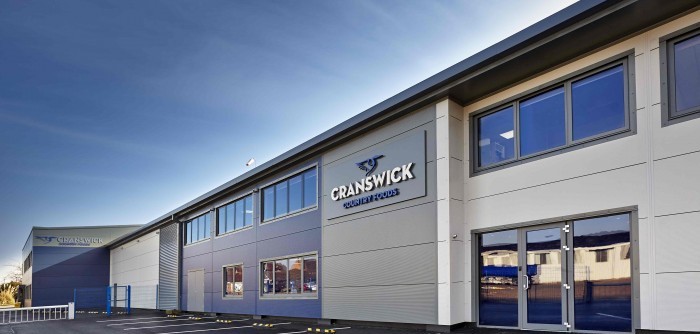Cranswick’s revenue topped £2bn in the last financial year, up 6%, while its profits also grew by 6% to top £140 million.
The pork and poultry processor said this had been achieved despite ‘unprecedented industry wide labour and supply chain challenges’, which it said were ‘well managed with excellent customer service levels maintained’.
Fresh pork revenue, which represent a quarter of the total, was down nearly 8%, reflecting ‘the pass through of lower average UK pig prices during the year, softer export prices and reduced Far East export volumes’.
Fresh pork retail sales were ‘modestly lower’ year-on-year as more meat was transferred to its added-value convenience and gourmet product ranges, while Far East export revenue was 25% down, reflecting reduced demand from China and the ongoing suspension of the Norfolk site’s China export licence, although progress has been made in developing alternative pork export markets in Asia and South Africa.
However, weekly average pig numbers processed during the year increased by 1.5 per cent to 62,300, peaking at 67,200 in February 2022, with the additional volumes supporting increased demand from the Group’s Convenience and Gourmet Product businesses.
The big driver for the revenue was Cranswick’s poultry operations, which, accounting for 20% of the total, saw growth of 31%, following the capacity uplift in at its Eye factory and the recovery of food service revenues. Convenience revenues were up 6% and gourmet revenues up 5%.
Among total capital expenditure of £93.7m, Cranswick invested £26 million, across its three primary processing facilities and farming infrastructure in the year and said it continues to invest in farming to ‘add capacity and improve our already industry leading animal welfare standards’.
Key figures for the year to March 26, 2022
- Revenue – £2,008.5m +5.8%
- Adjusted Group Operating Profit – £140.6m +6.1%
- Adjusted Group Operating Margin – 7%
Pricing structures
The processor said it has changed its pig pricing structures in light of the recent Ukraine-drive feed cost spikes. “The sharp increase in feed prices incurred by producers, alongside high levels of UK cost inflation, has accelerated the need to introduce new compensation mechanisms for farmers,” it said.
“These measures mark a short-term move away from prices linked to the SPP as processors work with retailers to establish greater use of cost of production models. These models provide greater certainty and speed of cost recovery to producers, in turn creating security of supply for consumers.”

Cranswick’s CEO Adam Couch said: “With the support of our customers, we have partially reflected these higher input costs in the price we pay to both our own farming operations and our third-party producers.”
“He said the company has ‘worked tirelessly to support our customers while continuing to prioritise the safety and wellbeing of our colleagues across the business’.
“We have consistently delivered exemplary service levels to our customers, supported our local communities and made great strides toward delivering many of our Second Nature sustainability targets,” he said.
However, he said he was ‘disappointed that the Government’s response to our sector’s calls for support has been so muted’. “The rapid escalation in feed costs, together with other inflationary pressures and the well-publicised shortage of skilled butchers resulting directly from the Government’s post-Brexit immigration policy, has put the pig producer sector under severe and unsustainable strain.
“We have suggested ways to mitigate these challenges, including reducing exports of soft commodities and their use in bioethanol production, which have not been acted on. More needs to be done by Government in the coming months to ensure that we have a viable long-term pig farming industry.”
He said trading had been in line with the Board’s expectations and that, despite, the challenging operating conditions, the outlook for the current year is unchanged.
Group chairman Tim Smith said: “The positive progress we have made highlights the robust and sustainable nature of our business model.
“The unprecedented, well-publicised, industry wide labour and supply chain challenges have been well managed with excellent customer service levels maintained. The cost inflation we continue to experience, a global phenomenon, is being proactively managed and recovered.”




